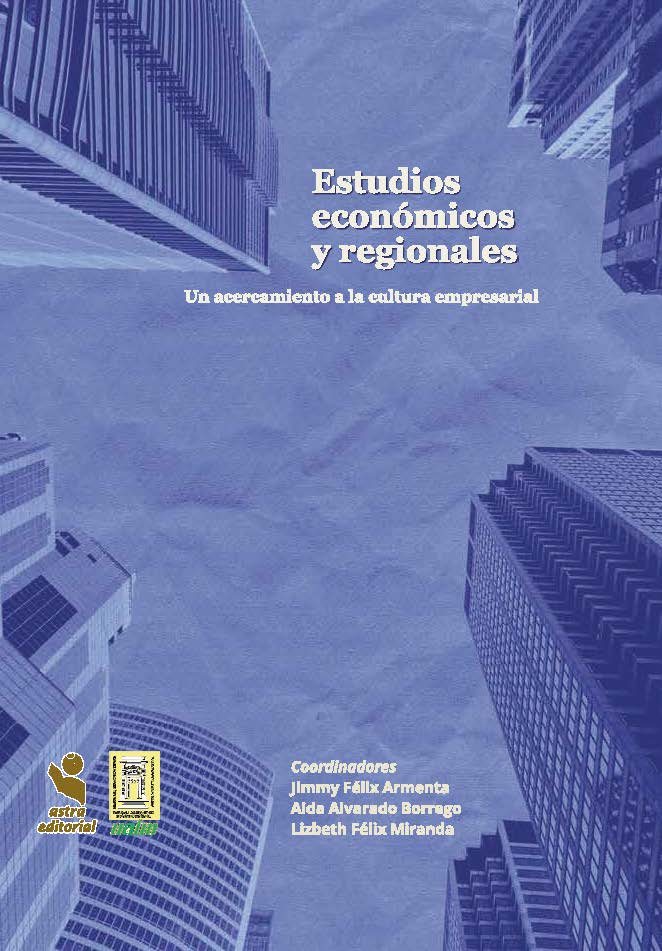
ISBN
979-13-87631-32-1
Fecha de publicación
27-12-2024
Licencia
D. R. © copyright 2023. Jimmy Félix Armenta, Aida Alvarado Borrego y Lizbeth Félix Miranda
Moisés Alejandro Alarcón Osuna
Universidad de Guadalajara
0000-0003-3713-0565
Acerca de
En los últimos años, ha habido un interés creciente en la implementación de tecnologías más limpias (Rumanti, Wiratmadja y Irianto, 2023; Verawaty et al., 2023; Omri, Courrent y Nemeh, 2023; Rozak et al., 2023). Este interés no solo se manifiesta como una estrategia de responsabilidad social corporativa (RSC), sino también como una respuesta a los requerimientos establecidos en los tratados comerciales internacionales o requerimientos legislativos (Zioto, Bąk, Spoz, 2023). La adopción de tecnologías limpias se ha convertido en una prioridad tanto para las empresas como para los gobiernos, dado su potencial para reducir el impacto ambiental y promover la sostenibilidad.
Un ejemplo destacado es el sector de la electromovilidad, que ha sido un foco central en el marco del Tratado entre México, Estados Unidos y Canadá (T-MEC). Este tratado comercial incluye disposiciones específicas que incentivan y, en algunos casos, requieren la adopción de tecnologías que minimicen las emisiones de carbono y mejoren la eficiencia energética. La integración de la electromovilidad no solo cumple con los objetivos ambientales del tratado, sino que también representa una oportunidad significativa para la innovación y el desarrollo económico en la región.
En este contexto, las pequeñas y medianas empresas (pymes) juegan un papel crucial. Las pymes constituyen una parte importante de la economía y tienen la flexibilidad y capacidad para adaptarse rápidamente a las nuevas tendencias y requerimientos del mercado. La adopción de tecnologías limpias por parte de las pymes no solo contribuye al cumplimiento de las normativas ambientales, sino que también puede mejorar su competitividad y abrir nuevas oportunidades de mercado. Esto ha dado como resultado la implementación de modelos de negocio sostenibles (MNS), ampliando la importancia del estudio de la transición de las pymes hacia los MNS (Troise et al., 2023; Omri, Courrent y Nemeh, 2023).
Referencias
Asthana, S. (2022). Twenty-five years of SMEs in tourism and hospitality research: A bibliometric analysis. EconStor Open Access Articles and Book Chapters, 8(2), 35-47.
Bachtiar, N., & Setiawan, A. (2023). A Bibliometric Analysis of Themes and Network Structures for Future Research in SMEs Sustainability. Jurnal Manajemen Teori dan Terapan| Journal of Theory and Applied Management. https://doi.org/10.20473/jmtt.v16i3.47284.
Bartolacci, F., Caputo, A., & Soverchia, M. (2019). Sustainability and financial performance of small and medium sized enterprises: A bibliometric and systematic literature review. Business Strategy and the Environment. https://doi.org/10.1002/bse.2434.
Cano, J., Londoño-Pineda, A., Castro, M., Paz, H., Rodas, C., & Arias, T. (2022). A Bibliometric Analysis and Systematic Review. E-Marketplaces, Open Innovation, and Sustainability. Sustainability. https://doi.org/10.3390/su14095456.
Ferreira, N. C., & Ferreira, J. J. (2024). Quo Vadis Sustainable Entrepreneurship? A Systematic Literature Review of Related Drivers and Inhibitors in SMEs. IEEE Transactions on Engineering Management, 71(5), 9644-9660.
H. A. Rozak, A. Adhiatma, O. Fachrunnisa and T. Rahayu (2023). Social Media Engagement, Organizational Agility and Digitalization Strategic Plan to Improve SMEs’ Performance.
IEEE Transactions on Engineering Management, 70(11), 3766-3775, doi: 10.1109/TEM.2021.3085977.
Iturrios, Cristina & Narvaiza, Lorea (2015). How to foster shared innovation within SMEs’ networks: Social capital and the role of intermediaries. European Management Journal, 33(2), pp 104-115, https://doi.org/10.1016/j.emj.2014.09.003.
Kamar, V., Sasmita, K., Dharta, D., Rahma, F., Ade, A. (2023). Competitive Advantage in Java, Indonesia’s Small and Medium-Sized Businesses. General Management, 24(195), 360-365. DOI:10.47750/QAS/24.195.42.
Klewitz, J., & Hansen, E. (2014). Sustainability-Oriented Innovation of SMEs: A Systematic Review. Journal of Cleaner Production, 65, 57-75. https://doi.org/10.1016/J.JCLEPRO.2013.07.017.
Ma, T., Liu, Y., Jia, R. (2023). Multiple Driving Paths of High-Tech SME Resilience from a “Resource–Capability–Environment” Perspective: An fsQCA Approach. Sustainability, 15(10). https://doi.org/10.3390/su15108215.
Phonthanukitithaworn, C., Srisathan, W. A., Ketkaew, C. & Naruetharadhol, P. (2023). Sustainable Development towards Openness SME Innovation: Taking Advantage of Intellectual Capital, Sustainable Initiatives, and Open Innovation. Sustainability, 15(3), 2126. https://doi.org/10.3390/su15032126.
Rumanti, A., Sunaryo, I., Wiratmadja, I. & Irianto, D. (2023). Cleaner Production for Small and Medium Enterprises: An Open Innovation Perspective. IEEE Transactions on Engineering Management, 70(7), 2355-2368, doi: 10.1109/TEM.2020.3015048.
Salvador, R., Søberg, P. V., Jørgensen, M. S., Schmidt-Kallesøe, L., Brüning Larsen, S. (2023). Explaining sustainability performance and maturity in SMEs – Learnings from a 100-participant sustainability innovation project. Journal of Cleaner Production, 419. https://doi.org/10.1016/j.jclepro.2023.138248.
Sarango, P., Rodríguez, J. J., Tapia Carreño, K., & Galarza, B. E. (2023). Evolution and Trends in SME Digitization Research: A Bibliometric Analysis. Journal of Technology Management & Innovation, 18(1), 53-66. https://doi.org/10.4067/S0718-27242023000100053
Sharma, G. D., Kraus, S., Talan, A., Srivastava, M., & Theodoraki, C. (2024). Navigating the storm: The SME way of tackling the pandemic crisis. Small Business Economics, 63(1), 221-241.
Silvestri, R., Ingrao, C., Fiore, M. and Carloni, E. (2023). Digital innovation through networking among agro-food SMEs: the role of R&D projects. British Food Journal, 125(4), 1217-1231. https://doi.org/10.1108/BFJ-12-2021-1339.
Troise, C., Santoro, G., Jones, P., Bresciani, S. (2023). Small and medium enterprises and sustainable business models: Exploring enabling factors for adoption. Journal of Management & Organization, 1-14. doi:10.1017/jmo.2023.45
W. Omri, Courrent, J. M. and Nemeh, A. (2024). To Go or to Not Go Green for SMEs: Toward the Twinning Effect of Ecodesign Practices and Radical Innovativeness on SME Performance. IEEE Transactions on Engineering Management, 71, 6370-6381. doi: 10.1109/TEM.2022.3233521.
Wahab, N., Musa, R., & Yusoff, S. (2021). Measurement Validation of Factors Influence SME Business Performance in Malaysia. WSEAS Transactions on Business and Economics, 18(53), 1489-1497.
Westman, L., Luederitz, C., Kundurpi, A., Mercado, A., Burch, S. (2023). Market transformations as collaborative change: Institutional co-evolution through small business entrepreneurship. Business Strategy and the Environment. https://doi.org/10.1002/bse.3083.
Zioło, M., Bąk, I., & Spoz, A. (2023). Theoretical framework of sustainable value creation by companies. What do we know so far? Corporate Social Responsibility and Environmental Management, 30(5), 1895-1910. https://doi.org/10.1002/csr.2489
